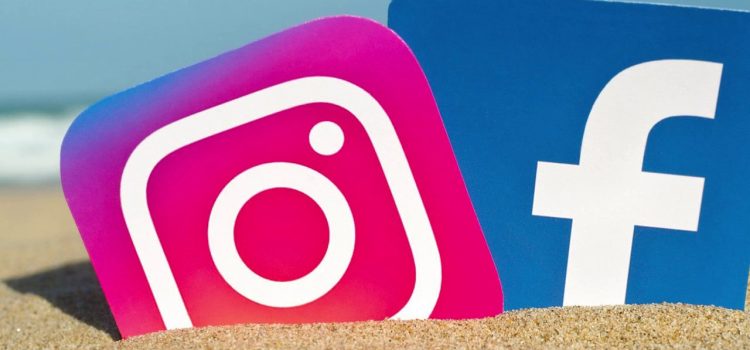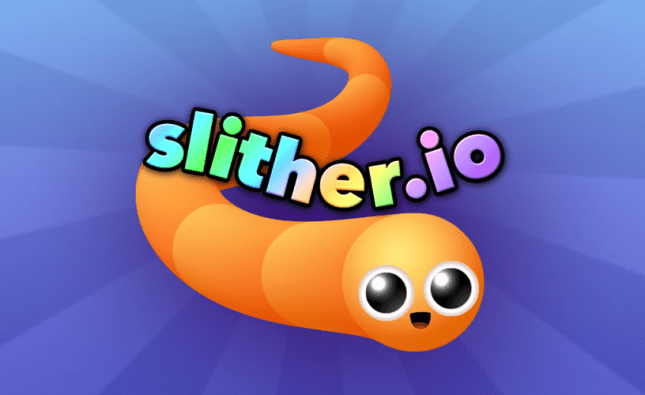
Introduction
Social media has changed how we connect with the entertainment industry. Platforms like Instagram, TikTok, YouTube, and Twitter have made it easier for people to access, share, and create entertainment content. This shift has affected everything from how movies, music, and shows are shared to how celebrities interact with their fans. Let’s take a closer look at how social media has changed the entertainment world.
The Rise of Social Media in Entertainment
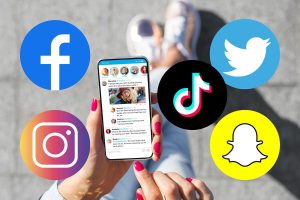
Social media platforms like Facebook, MySpace, and YouTube began the shift in how we connect with entertainment. These platforms allowed people to discover new music, movies, and videos that they might not have found before. Over time, social media became more than just a way to stay connected with friends – it became a space to discover, share, and promote all kinds of entertainment content. TikTok, with its short and engaging videos, further pushed the idea of viral content. Now, it’s possible to share and promote music, movies, and even entire shows without relying on traditional media channels.
Connecting Celebrities and Fans Directly
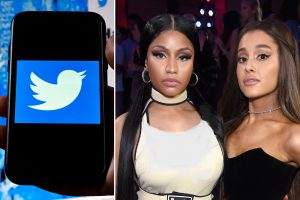
One of the biggest changes social media brought to entertainment is how it allows celebrities to interact directly with their fans. Before social media, people had to wait for TV interviews, magazine articles, or public events to see what celebrities were up to. Now, a celebrity can post a picture, video, or message on Instagram or Twitter in seconds, connecting with millions of followers. This direct communication has made fans feel closer to their favorite stars and allows celebrities to share personal moments in a way that wasn’t possible before.
The interaction between celebrities and fans has also led to viral trends, challenges, and memes. These trends can spread quickly, often leading to millions of views and more attention for the entertainment involved. This new connection between stars and their audiences has created an entirely new way of consuming entertainment.
Content Creation and Sharing
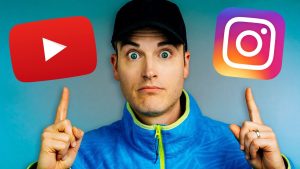
Social media has allowed anyone with a phone or camera to create and share content. Before social media, creating content like music videos or short films often required big studios, equipment, and a lot of money. Now, a person can shoot a video on their phone and share it with the world. Platforms like YouTube and Instagram have made it easier for independent creators to gain a following without needing to work with big studios or production companies.
This has led to the rise of creators, influencers, and vloggers who have huge followings. These creators often promote products, albums, or even movies through social media, making it a powerful tool for entertainment marketing. Social media has made it possible for people with unique talents to gain attention and share their work with a global audience.
Algorithms and Personalized Content
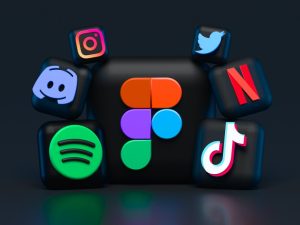
The algorithms on social media platforms like Instagram and TikTok help users discover new content based on what they like or watch. These algorithms suggest new music, videos, and even shows to watch, making it easier for people to find new content they might enjoy. This personalized experience has changed how people consume entertainment. Instead of waiting for TV commercials or radio ads, users now get recommendations that match their preferences and interests.
Streaming services like Netflix and Spotify also use similar algorithms to suggest movies, shows, and music. These recommendations are based on what users have watched or listened to before, helping them discover new content they might enjoy.
Social Media’s Role in Music and Live Events
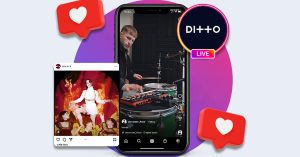
The music industry has greatly benefited from social media. Artists can now release songs, albums, and music videos directly to their followers on platforms like Instagram, Twitter, and TikTok. These platforms also allow artists to interact with fans in real time, sharing updates about new releases and upcoming tours.
Social media has also changed how live events are shared. Fans who can’t attend concerts or festivals can still enjoy live performances by watching them on platforms like Instagram Live or TikTok. Event organizers and performers can also use social media to promote events, build excitement, and connect with audiences during the event. Social media has made it easier for people to participate in live experiences, even if they’re watching from their phones or computers.
Influencers and User-Generated Content

Influencers are people who have built large followings on platforms like YouTube, Instagram, and TikTok. These individuals can influence trends and shape what’s popular in entertainment. Influencers often promote brands, music, and other forms of entertainment through their social media platforms. Because they are seen as more relatable than traditional celebrities, their endorsements can have a huge impact on a product’s success.
User-generated content is also a big part of how entertainment spreads. Fans can create their own videos, memes, or posts about movies, TV shows, or music they love. These fan-made creations help promote the original content, giving it more exposure. Sometimes, this user-generated content can go viral, leading even more people to check out the original content. Social media gives fans the power to promote and celebrate the entertainment they enjoy.
How Social Media Has Changed Music Promotion
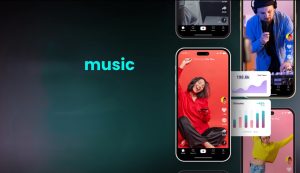
Social media has completely changed how music is shared and promoted. Artists no longer have to rely only on radio stations or TV channels to get their music out there. Now, they can post songs or music videos directly on platforms like Instagram, TikTok, and YouTube. Fans can easily discover new artists by scrolling through their feeds. Social media also allows artists to get instant feedback from their audience, making it easier to connect and grow their fanbase.
Social Media and Movie Marketing
Movies and TV shows now use social media to build excitement and reach more viewers. Before a film even hits theaters, studios often use social media to share trailers, behind-the-scenes clips, and cast interviews. These posts can generate buzz and get people excited to see the movie. Social media also gives fans the chance to share their thoughts and reactions, making them feel involved in the movie’s success.
Influencers and Their Impact on Entertainment
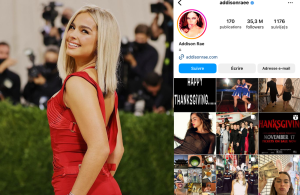
Influencers are people who have built large followings on social media platforms. They play an important role in shaping entertainment trends. Many influencers share the latest movies, music, and TV shows with their followers, helping these things go viral. Because influencers are seen as more relatable than traditional celebrities, their recommendations are often trusted more by fans. As a result, influencers help drive interest and sales in entertainment content.
Social Media’s Role in Fan Communities
Social media has helped create communities of fans who share a passion for movies, music, and TV shows. Fans can join groups, chat with others, and share content related to their favorite stars or genres. These communities help build strong connections between fans and give them a space to share their thoughts and ideas. Social media has turned being a fan into an interactive experience where people can participate and feel like they are part of something bigger.
Social Media’s Influence on Fashion in Entertainment
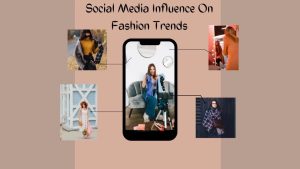
Fashion and entertainment are closely linked, and social media has made it easier for fans to keep up with trends. Celebrities and influencers often share their outfits or fashion choices on platforms like Instagram, setting new trends for others to follow. Fans now have easy access to the latest styles and can even copy their favorite celebrity’s look. Social media has made fashion a bigger part of how we experience entertainment, with style becoming just as important as the content itself.
Challenges of Social Media in Entertainment
While social media has brought many benefits to the entertainment industry, there are also some challenges. One major concern is the pressure it puts on celebrities and influencers to constantly engage with their followers. The need to post regularly, maintain a public image, and keep up with online trends can be overwhelming. Many celebrities and creators struggle with mental health issues because of this constant pressure to stay relevant.
Another challenge is the spread of fake news and misinformation. Social media can sometimes be used to spread rumors, misleading information, or negative gossip about celebrities and entertainment projects. This can hurt careers or create confusion among fans, making it harder to trust information shared online.
Looking Ahead: The Future of Social Media in Entertainment

Social media will continue to play a key role in the future of entertainment. New technologies like virtual reality (VR) and augmented reality (AR) could change the way we experience entertainment on social media. These technologies will allow fans to interact with content in more immersive ways, like attending virtual concerts or exploring virtual movie sets.
As social media continues to evolve, it will shape how content is created, shared, and consumed. The entertainment industry will have to keep adapting to new trends and platforms in order to stay connected with audiences. Whether it’s through influencer marketing, live events, or viral challenges, social media will remain a powerful force in the entertainment world.
Analysis Table: How Social Media Affects Entertainment
| Impact | Description | Effect |
|---|---|---|
| Content Creation | Social media lets anyone create and share content. | More people can create and share their own entertainment. |
| Fan Engagement | Celebrities and fans interact directly. | Fans feel closer to their favorite stars. |
| Music Promotion | Artists can promote music and albums directly to fans. | Easier to reach a global audience for music releases. |
| Event Promotion | Events are shared in real-time on social media platforms. | More people can participate in live events from anywhere. |
| Influencer Power | Influencers shape trends and promote entertainment through social media. | Influencers help new content get noticed quickly. |
| Content Discovery | Algorithms suggest new content based on user interests. | Easier for users to discover new music, shows, and movies. |
| Mental Health | Social media pressure affects celebrities and influencers. | Increased stress and online harassment for creators. |
Comparative Table: Traditional vs. Social Media Entertainment
| Aspect | Traditional Entertainment | Social Media Entertainment |
|---|---|---|
| Content Distribution | Through TV, radio, and movies. | Shared instantly on platforms like Instagram and TikTok. |
| Audience Engagement | Limited to TV shows and movies. | Real-time interaction with celebrities and fans. |
| Content Creation | Created by studios, companies, and record labels. | Anyone can create content on their phone or computer. |
| Promotion | Relies on TV ads, print, and radio. | Promoted through social media and influencers. |
| Access to Content | Limited by TV schedules or movie theater times. | Accessible online, at any time, from anywhere. |
Conclusion
In conclusion, social media has profoundly reshaped the entertainment industry by democratizing content creation, enhancing audience engagement, and revolutionizing marketing strategies. While it has brought unprecedented opportunities for visibility and connectivity, it also poses challenges that require thoughtful navigation. As technology continues to evolve, so too will the dynamics between social media and entertainment, shaping the future of how we create, consume, and experience content.








